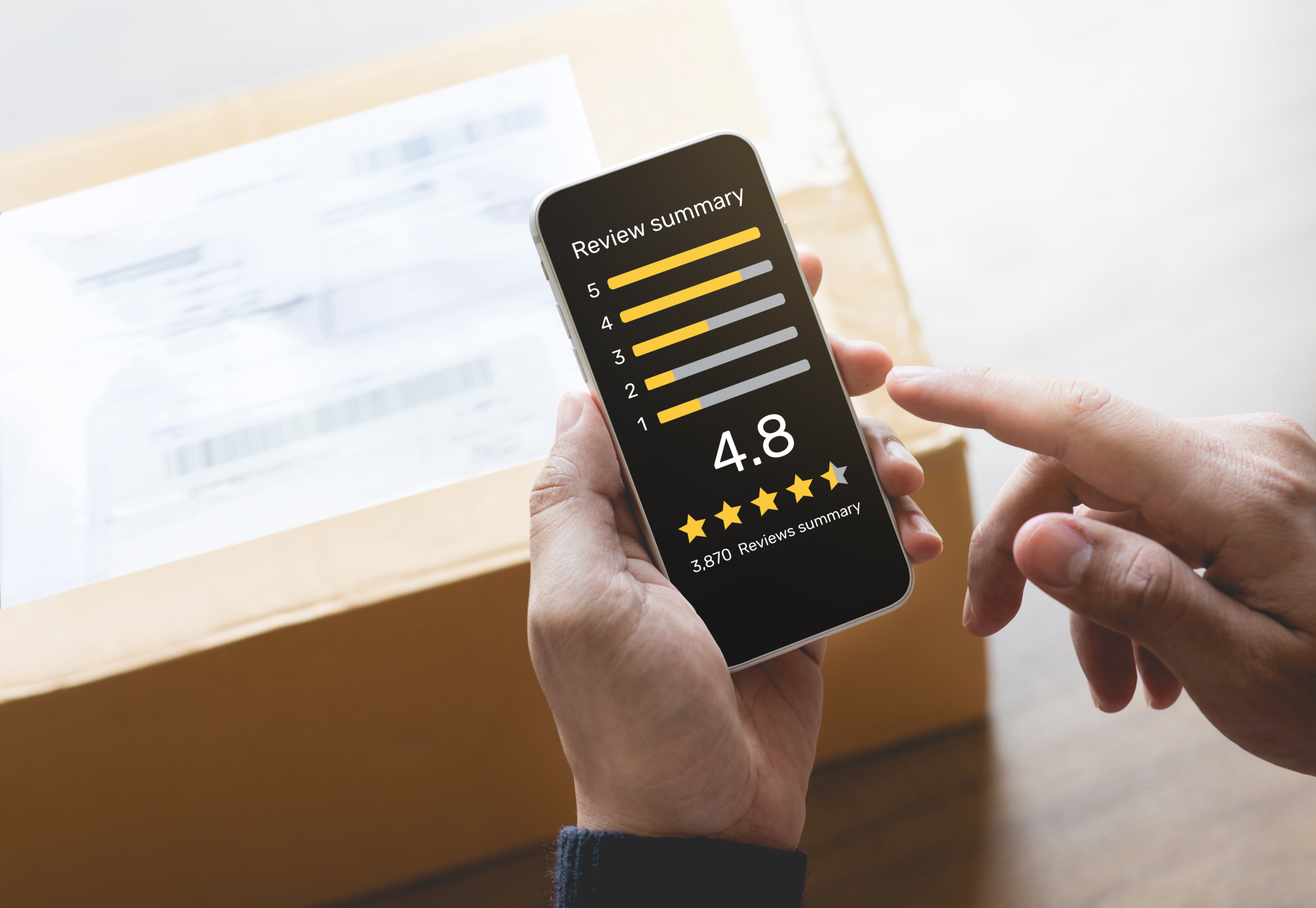Efficiency in motion - harnessing instant messaging to deliver trust in logistics
Efficiency in motion - harnessing instant messaging to deliver trust in logistics

In recent years, the Middle East’s e-commerce market has witnessed impressive growth. According to a report by EZ Dubai, the region's total e-commerce market size is expected to reach $57 billion by 2026, alongside a CAGR (Compound Annual Growth Rate) of 11% over the 2022-2026 period.
It’s also significant that the same report showed that Saudi Arabia and the UAE account for more than 72% of that growing MENA e-commerce market.
With this growth in e-commerce, logistics and transportation companies in the region have seen a similar rise in demand for their services, as people want to get hold of their online purchases as soon as possible in a reliable and convenient way.
This has presented both an opportunity and a challenge for the logistics and transport industry in the region as players compete for business and try to develop the industry infrastructure at the same time.
One of the persistent challenges in the Middle East market has always been last-mile delivery. Due to variations in planning policies and regulations, many homes lack standardized recorded addresses that are universally recognized. Also, postcodes are sporadically and inconsistently used across the region, which only adds to the challenges logistics companies face.
All this means that logistics companies that can break the mold and use the features of multi-channel conversational platforms to overcome barriers and deliver a great service, stand to gain a lot of market share. In Saudi Arabia, SPL have successfully used Unifonic’s suite of solutions and leveraged the country's National Address System to eliminate this issue and deliver a better logistics experience to their millions of customers in the kingdom. You can read more about their story here.
Below, we highlight the stages of the logistics process where these technologies and techniques can be used by the logistics industry to provide a better experience for e-commerce shoppers.
Pre Sale
Logistics can often concern potential customers even before they commit to a purchase. Digital conversational channels can play a big part at this stage by providing detailed information about the delivery process and allaying any concerns that the customer may have. Offering peace of mind at this stage - that the delivery process will be smooth - can be the difference between browsers turning into customers. By providing easy, interactive access via mobile devices to FAQ’s, delivery and return policies, shipping times, service center locations, contact details, and a clear explanation of the delivery process, barriers and doubts can be effectively removed.
A self-serve channel that deals with all potential pre-sales queries can be established and delivered 24/7 over WhatsApp, WebChat on Websites or in-App, as well as over social media messaging to ensure that questions are answered, whatever the customer’s favorite channel is.
Order Confirmation
Order confirmation plays a crucial role in setting customer expectations and establishing trust. E-mail is often seen by consumers as a more official form of communication and a sign that their purchase has been successful. Receiving this email is seen by many consumers as the start of the journey toward getting their purchase in their hands. However, utilizing additional backup channels such as SMS or instant messaging services like WhatsApp can provide an extra layer of reliability and convenience and gives customers a choice in how they receive important information. The same channels can also be used to deliver invoices, waybills, and all relevant paperwork related to a purchase.
Order Tracking

Tracking packages is an integral part of the logistics process and customers now expect regular, accurate, and informative delivery and tracking updates. Conversational marketing platforms can greatly enhance this tracking experience. Because tracking numbers are by their nature unique, and stages in the logistics process are standardized and objective, the process lends itself well to providing regular updates to customers, informing them of exactly where their delivery is and how long it will take to reach them. By adding this tracking data via an API to CRM systems, logistics companies or vendors can make these updates more personalized by using customer names or previously stored communication channel preferences. By incorporating conversational ai chatbots into their systems, logistics companies can provide customers with easy access to tracking information using secure authentication and verification methods to ensure no confidential information is inadvertently shared.
At this stage, it is also important for logistics companies to have an efficient system in place for customers to escalate any non-standard issues to a live agent when standard template messages or chatbots can not help. Including a "chat to agent" link on chat platforms or via email can streamline the communication process, ensuring prompt resolution of customer concerns. By utilizing AI, it’s now possible for companies to detect and address any potential delays and irregularities in the delivery process as soon as anomalies are detected. If a customer gets a call or a notification from a company informing them of an issue - and how they will resolve it - before they have noticed, any potential negative experience can quickly be turned into a positive.
Last Mile
The last mile of delivery is often the most critical and challenging part of the logistics process, particularly in the Middle East, where, as we have already discussed, there are some unique challenges. Employing multi-channel communication techniques at this final and most important part of the process can greatly enhance the last-mile experience for customers.
Automated confirmations sent via SMS or instant messaging on the day of delivery can provide customers with an expected delivery window and an opportunity to confirm the location and address. As the delivery time approaches, logistics companies should provide more specific information, including the contact details of the driver, ensuring that customers can easily get in touch if needed. To protect privacy, number masking techniques can be employed to prevent the sharing of personal information between the driver and recipient. This ensures that all parties’ privacy is respected and preserved.
In cases where the driver encounters difficulty locating the exact address, they can reach out to the recipient, either directly or through an automated message and response, to confirm the location or take advantage of location-sharing features available on instant messaging platforms. By using the features of conversational messaging platforms to their advantage, logistics companies can make the last-mile delivery process smoother and ensure an easy and efficient experience for customers. A good experience at this stage can be the difference in whether a customer comes back in the future or not.
After-Sales Service

After the delivery is complete, engaging customers through multi-channel communications can significantly contribute to building brand loyalty and improving future services.
Using email, SMS, or instant messaging, logistics companies can request feedback on the delivery service in an unobtrusive way. By collecting and analyzing this feedback, companies can gain valuable insights and continuously refine their processes, ensuring that future customers benefit from the lessons learned.
Chatbots can also be configured to request feedback from customers after delivery. By asking a series of short multiple-choice questions, a chatbot can harvest useful feedback in a format that a customer doesn’t find obtrusive to provide.
Collecting customer feedback and, crucially, using that data to inform future decisions, allows logistics companies to deliver an improved customer experience and stay ahead of the competition.
If the delivery process has not gone according to plan, or if the customer is not satisfied with other aspects of the product or service, digital channels can again be harnessed to smooth out the complaints, refunds, and returns processes. By building robust automated workflows and delivering them over channels that customers are comfortable with, after-sales and troubleshooting can be performed efficiently and turn unsatisfied customers into loyal ones. Detecting patterns in customer complaints is also vital to improve products and services.
Loyalty
After a successful purchase, the same conversational channels that were used to facilitate the logistics process, can then be used to encourage repeat purchases, turning a one-off customer into a loyal brand advocate. Sending discount vouchers, new product alerts and special offer notifications can all help keep customers coming back for more.
Conclusion
In the highly competitive logistics industry, meeting customer expectations regarding delivery schedule and accuracy is crucial. The use of multi-channel communication incorporating chatbots, SMS, email, and instant messaging, along with the use of technologies such as number masking, secure authentication, and API integrations with other internal systems, offer logistics companies the necessary tools to provide an exceptional experience to their customers.
By taking advantage of these widely available platforms and embracing the power of multi-channel communication, logistics companies can streamline their operations, enhance customer engagement, and deliver a better logistics experience. As the Middle East continues to witness remarkable growth in the e-commerce market, adopting these strategies will be essential for logistics and transportation companies to meet the evolving demands of their customers and maintain a competitive edge in the industry.
To speak to Unifonic about using multi-channel communications platforms in your company, contact us today
Related articles

26 December 2022
What Is Conversational Banking?
Read more



